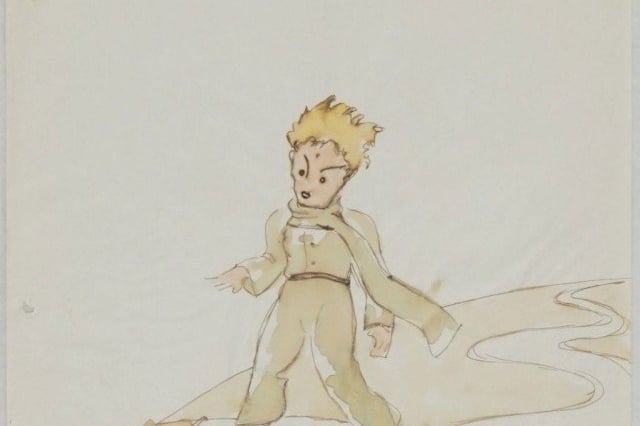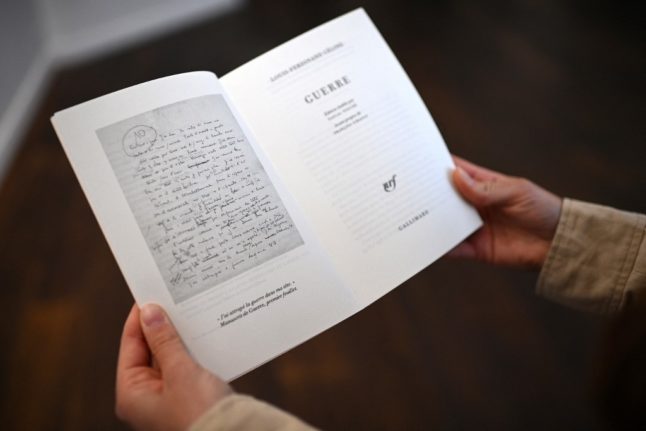The drawings were purchased at auction some three decades ago by Bruno Stefanini, a real estate magnate and major collector who died last year, said Elisabeth Grossmann, curator of the Cultural Foundation of Winterthur.
She said “The Little Prince” sketches were found in good condition in a folder with other works in a building in Winterthur.
“The Little Prince” (“Le Petit Prince”), a novella charting the fantastical interstellar voyage undertaken by the eponymous hero, has sold 145 million copies worldwide and been translated into 270 languages.
.jpg)
Photo: Handout SKKG_le petit prince
Saint-Exupéry escaped to the US after Germany's invasion of France and it was during his exile there in 1942 that he wrote his famous book. It was first published in 1943.
The author also lived in Switzerland from 1915 to 1917 while attending boarding school in the central canton of Fribourg.
Stefanini, one of Switzerland's largest collectors who assembled tens of thousands of works before his death, set up the Winterthur to manage his artistic holdings.
He bought the Saint-Exupéry sketches at an auction in 1986 in the town of Bevaix, according to the Landbote newspaper, which first reported the discovery on Thursday.
The sketches include an image of The Little Prince talking to a fox, “The Tippler” sitting on his planet, and the iconic image of a boa constrictor that has just eaten an elephant.
Grossmann said the Winterthur museum would contact New York's Morgan Library, where Saint-Exupéry's original sketches are held, to inform them of the discovery.
Saint-Exupéry, a pilot, mysteriously disappeared over the Mediterranean on July 31th, 1944 shortly after taking off on a wartime mission.



 Please whitelist us to continue reading.
Please whitelist us to continue reading.
Member comments